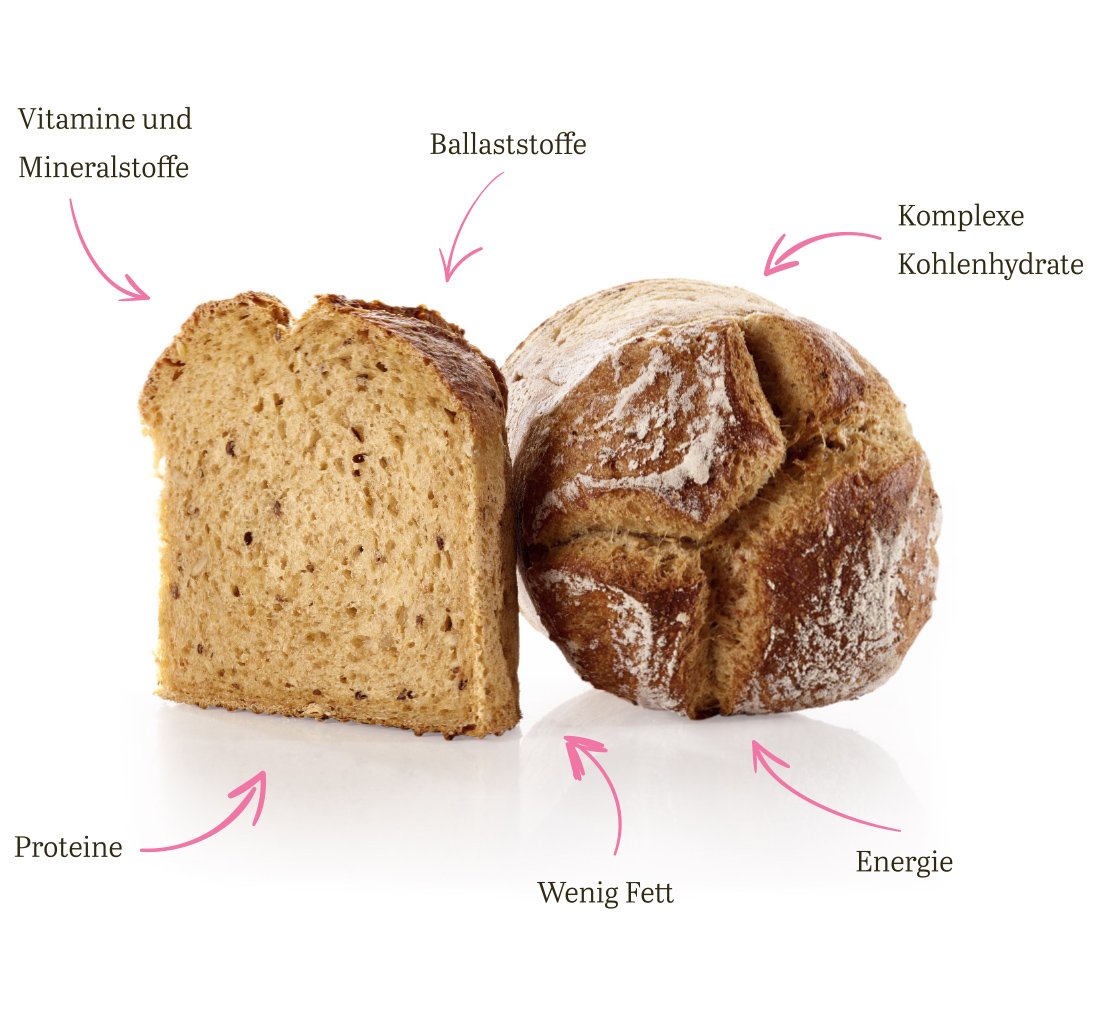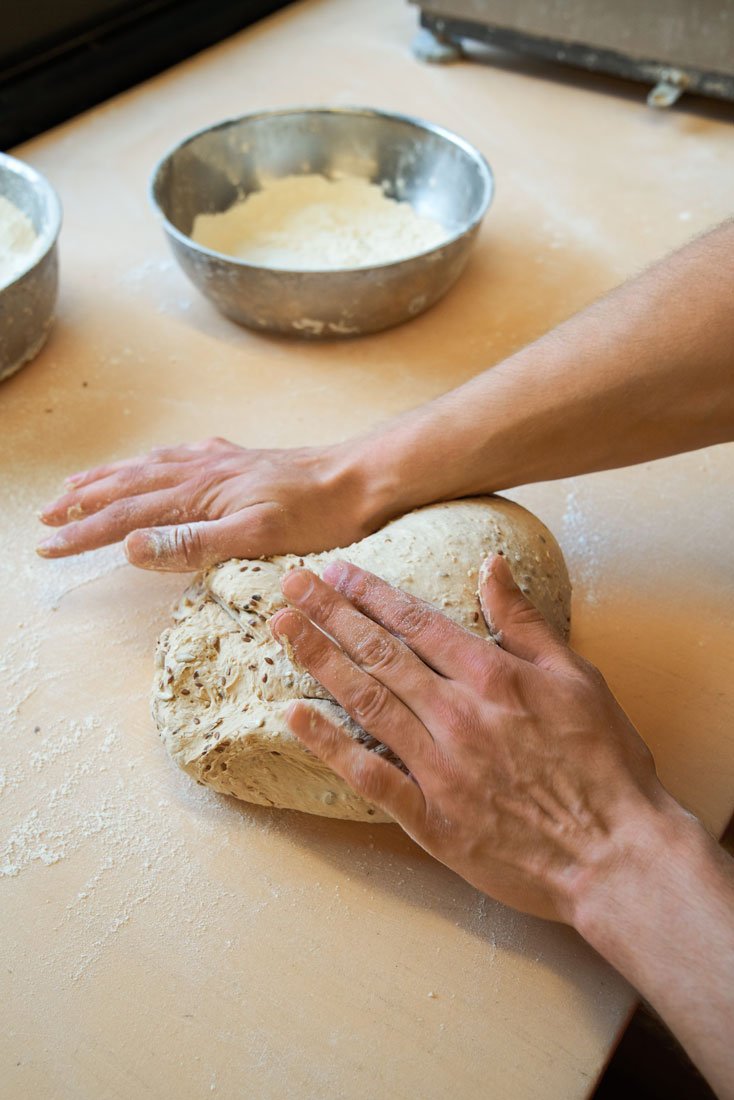Our daily ‘Bachme’ bread
Bread is a true wonder of nature - the foundation of a balance and healthy diet.


Traditionally, bread is made from flour, water, salt, and yeast.
With only these four ingredients it is possible to create such a delicious and essential food. Depending on the type of flour, bread can be varied and many different bread creations can be made. Wheat, rye, spelt, and many other flours can give bread that special something.
Valuable through wholemeal flour and wheat germ
Looking more closely at the nutritional values, it becomes clear that high-quality bread contains little fat, but does provide protein and complex carbohydrates (slowly absorbed sugars). This is thanks to the high-quality flour used. Balanced bread therefore depends largely on the flour. The higher the wholemeal content, the more valuable the nutrients – and thus the bread. In addition, bread can be enhanced with other tasty ingredients such as grains, nuts, and fruits.
7 Facts about Bread
- Bread doesn’t make you fat – bread itself is not a calorie bomb; usually it’s the toppings such as butter, salami, cheese, etc. that are high in calories.
- Bread keeps you full for longer – wholemeal bread contains complex carbohydrates and helps prevent cravings.
- White bread is easy to digest and stimulates the appetite.
- Bread contains vitamins – the higher the wholemeal content, the more B vitamins are present in the bread.
- Bread becomes damp in the fridge and should be stored at room temperature.
- Fresh, still-warm bread does not cause stomach aches – eating too quickly does.
- Bread is not just bread – the method of baking and the ingredients define its quality.










